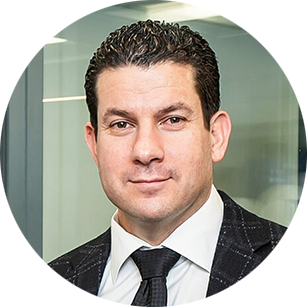Accounting – Bookkeeping Services, CFO, Tax Accountant Toronto
There are three levels of accounting services that a business needs. This article will introduce them in a functional manner. Faris CPA can provide either one, two, or all three services to your business.
Bookkeepers that offer bookkeeping services can be contractors or employees. Bookkeeping services ensure the accurate recording of financial transactions of a business including sales, purchases, disbursements, and receipts. They ensure the accuracy of journals and ledgers, calculate and remit amounts to government, and prepare financial statements for internal use.
Although all businesses need bookkeeping and other global financial services from the beginning, a controller isn’t needed until the number of financial transactions and the complexity of the business increases. A controller both manages and oversees the accounting and reporting for a business. The controller oversees two or more accounting clerks (including the Tax Accountant Toronto), optimizes their work, implements internal controls, and uses financial information for decision making.
Increased complexity requires a Chief Financial Officer – the CFO. The CFO is a senior manager and part of the strategic team that works with owners and directors to effect change in the company. A CFO looks at past information and future goals to steer a path that ensures adequate risk mitigation, takes advantage of growth opportunities, and provide continuous analysis of the business’s financial environment. A CFO will oversee not just bookkeeping services, but also that of a Tax Accountant Toronto and others responsible for government reporting and filing.
Depending on the current state and future goals of your business you will need either one or all three of these roles filed by competent individuals. Faris CPA can both help you decide what roles your business must fill and also fill the roles of bookkeeper (including tax accountant Toronto), controller, and CFO.
FAQ’s
Are controllers required to be CPAs?
A controller doesn’t necessarily have to be a CPA. Controllers typically develop and analyze financial information. What distinguishes them from other traditional accountants is their forward-looking approach. Most accountants track and record current finances, reviewing and analyzing past performance but have limited input into an organization’s strategy for the future. A controller, on the other hand, has an accountant’s background and skill but a forward-looking role in the organization. It is also important to note that a controller is a senior manager with input into the company’s planning and strategy.
What are the qualifications of a good controller?
A good controller should know the dynamics of the sector they work in. This will help them understand the objectives of the company and in making better decisions. Additionally, they should have good knowledge of office technology and in particular, mastery of databases and Excel. They work regularly with the accounting department and use the available information to establish trends. Computer skills are very important in bringing together every kind of data received. A good controller must strive for greater business efficiency. This can be achieved through analyzing the company’s business processes.
How do I know if I need a full-time or part-time bookkeeper?
There is no a perfect formula that lets you decide whether you need a full-time or part-time bookkeeper. But there are some considerations that will guide you to making better choices. Are you spending more time on bookkeeping than on doing more important jobs? Or are you entirely avoiding bookkeeping duties because you don’t want to be involved with them? Actually, most small business owners don’t have accounting knowledge, so a lot of bookkeeping tasks are out of their expertise.




